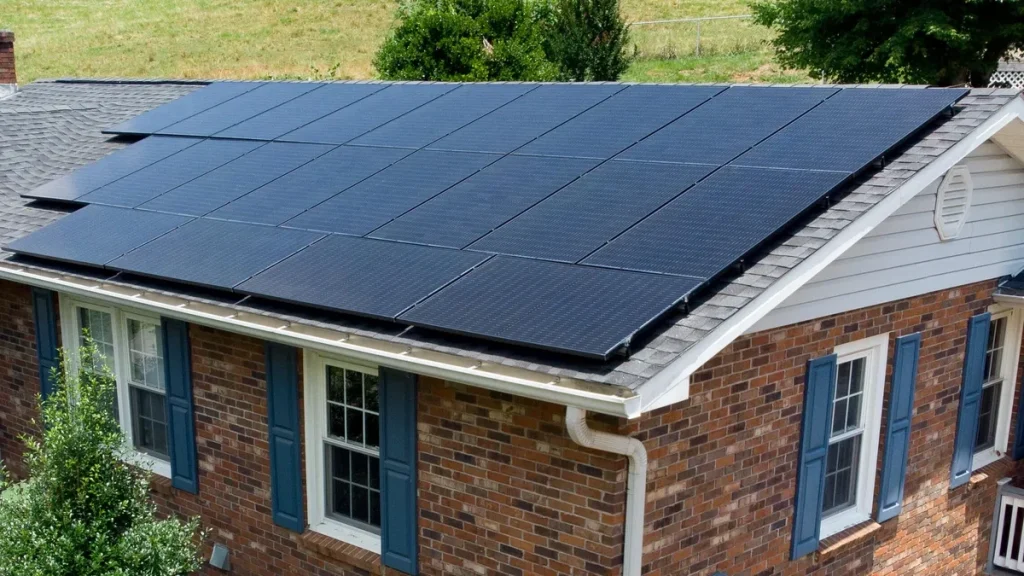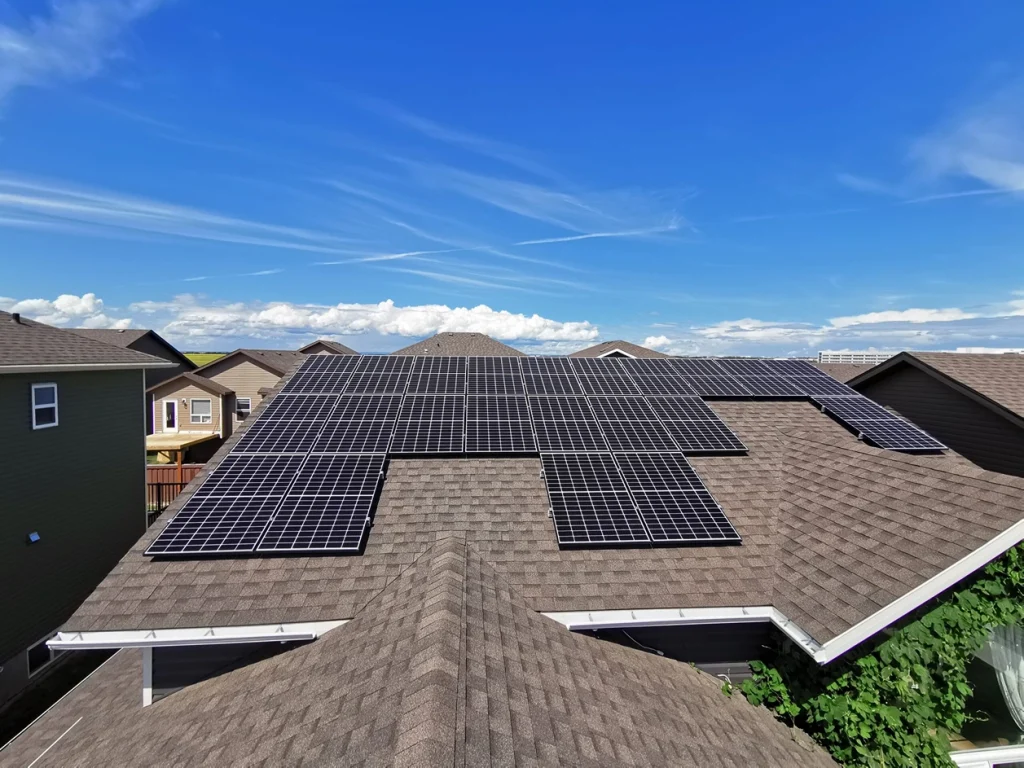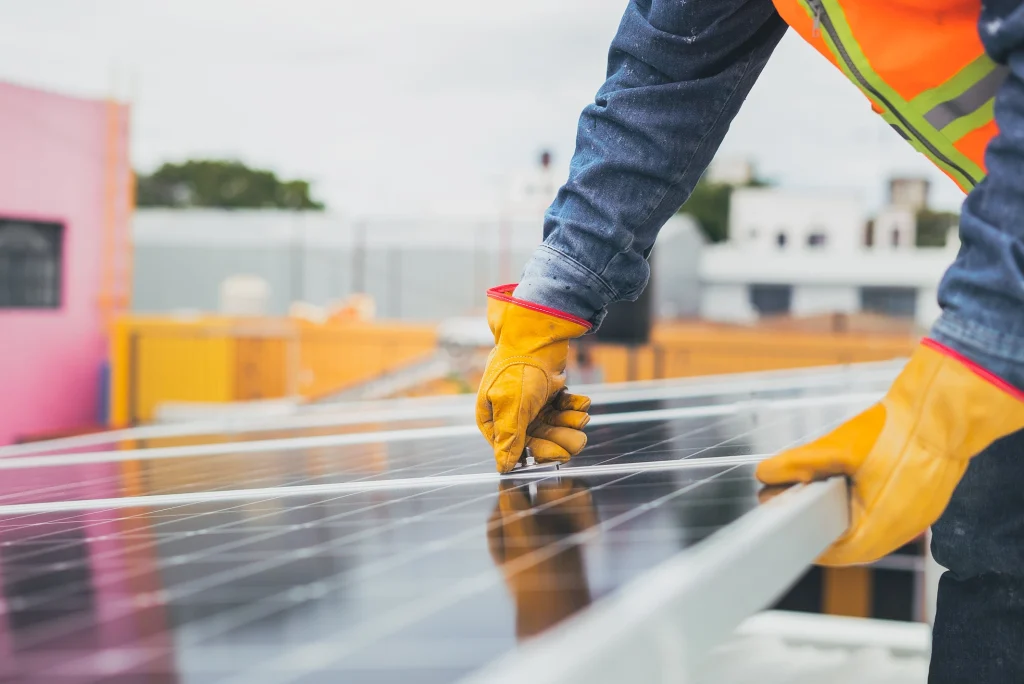In the quest for a greener future and lower energy bills, many Massachusetts residents find themselves tantalized by offers of ‘free’ solar panels. It sounds almost too good to be true, and for a good reason – it is a misconception that warrants a closer look. These eye-catching ads often don’t disclose the full story, opting instead to capture your attention with the allure of costless energy. But once you peel back the layers, you’ll discover that the term ‘free’ comes with caveats and conditions that are crucial to understand.
As you consider transitioning to solar power, it’s essential to dive deeper into the real meaning behind ‘free’ solar panels and the various incentives and financing options available in Massachusetts. Knowledge is power, and being well-informed can lead you to substantial savings and a successful solar installation that aligns with your financial and environmental goals. Let’s unravel the complexities of solar panel financing together and shine a light on the path to renewable energy that is both beneficial and achievable. Continue reading to learn everything you need to know about navigating the solar landscape in Massachusetts, ensuring that when you make the switch, it’s done with clarity and confidence.

Are “Free Solar Panels” Really Free?
When you encounter the offer of ‘free solar panels’, it’s crucial to understand the underlying details of such a proposition. In the solar industry, this term can be misleading as it implies that you can obtain solar panels at no cost. However, the reality is somewhat different. Rather than an outright gift, ‘free solar panels’ typically refer to financial arrangements like solar leases or Power Purchase Agreements (PPAs), which come with specific obligations and conditions.
In a solar lease, a company installs panels on your property without requiring an upfront payment. Instead of owning the panels, you lease them, paying a fixed monthly fee for the duration of the lease agreement. This fee is for the use of the solar panel system, and your payments are generally lower than your usual electricity bill, allowing you to save money over time.
Similarly, with a PPA, you don’t pay for the solar panels themselves. Instead, the solar company owning the panels sells you the electricity generated by them at a rate typically lower than the local utility’s price. You pay for the solar power produced, not the equipment or the installation.
In Massachusetts, both solar leases and PPAs can offer an appealing way to go solar without a large upfront investment. These are particularly attractive options if you want to reduce your electricity bills and your carbon footprint but are not ready or able to make a significant initial expenditure. Nevertheless, it’s important to compare these options with purchasing solar panels outright, which may offer greater long-term savings and the potential for various federal, state, and local incentives.
Remember, when considering ‘free solar panels’ offers, it’s about understanding the long-term commitment and calculating whether the solar lease or PPA aligns with your financial goals and energy needs. Always consider factors such as the length of the agreement, the cost escalation terms, and how the deal might affect the value of your property, should you decide to sell your home before the end of the lease or PPA term.
Solar PPAs
Power Purchase Agreements (PPAs) are a financial arrangement for solar energy where a solar service provider installs, owns, and maintains a solar panel system on a homeowner’s property. The homeowner then purchases the power generated by the system at a set per-kilowatt-hour (kWh) rate from the provider, typically lower than the local utility’s rate. This agreement usually spans a long-term period, such as 20 to 25 years.
In Massachusetts, the solar market is vibrant, and PPAs offer several advantages for homeowners:
- No upfront costs: Homeowners can go solar without the significant initial investment required to purchase a system.
- Predictable energy costs: PPAs provide a predictable energy rate, which may protect homeowners from future utility price increases.
- No maintenance worries: The responsibility for maintaining the system resides with the solar service provider.
However, there are also some downsides to consider:
- Lower financial benefits: While you gain from lower energy costs, you won’t benefit from the full savings or incentives like the Federal Investment Tax Credit that come with owning the system.
- Complexity in home selling: If you decide to sell your home, the PPA can complicate the transaction, as the new homeowner must agree to take over the contract.
- Less control: Since you don’t own the system, you have less control over it and are more at the mercy of the solar service provider’s terms.
When comparing PPAs to buying or leasing solar panels, there are critical differences to consider:
- Buying a solar system outright is costly upfront but offers the highest long-term savings since you own the system and benefit from all tax credits and incentives. You also increase your home’s value and aren’t bound by any third-party agreements or contracts.
- Leasing is similar to a PPA in that you don’t own the system and pay a monthly fee, but this fee isn’t tied to the amount of electricity generated. You avoid upfront costs and maintenance responsibilities but, like PPAs, miss out on the financial benefits of ownership.
Ultimately, deciding whether a PPA, lease, or direct purchase is best for you in Massachusetts will depend on your financial situation, energy needs, and long-term goals for your home. It’s crucial to weigh these factors and consult with a solar energy advisor to make the most informed choice.

Solar Leases
Solar leases are becoming a popular way for homeowners in Massachusetts to harness renewable energy without the hefty upfront cost of buying solar panels outright. Here’s how they work:
When you opt for a solar lease, you agree to have solar panels installed on your roof at little to no initial cost. A solar company owns the panels, and you pay a fixed monthly fee to “rent” the equipment. This agreement typically lasts 20 to 25 years. You benefit from the electricity generated, which can reduce your utility bill significantly.
Now, let’s delve into the benefits
- No Upfront Costs: You don’t have to pay for the solar panel system outright, which makes going solar more financially accessible.
- Predictable Energy Costs: Solar leases often offer a fixed monthly rate, making your home energy costs more predictable.
- Maintenance: The solar company is responsible for maintenance and repairs, which means less hassle for you.
- Environmental Impact: By using renewable energy, you’re contributing to reducing carbon emissions.
Drawbacks to consider include
- Less Savings: While you save on your electric bill, the savings are typically less than if you’d purchased the system due to ongoing lease payments.
- No Incentives: You may not be eligible for tax credits or incentives that come with purchasing a system outright.
- Contract Commitments: Breaking a solar lease can be costly if you decide to move or want to terminate the agreement early.
- Home Sale Complications: If you sell your home, the new owner must agree to take over the lease, which could complicate the sale.
Long-term cost implications and potential savings vary, but generally, leasing solar panels in Massachusetts can be financially advantageous over the long term due to the state’s high electricity prices. You’ll likely see a reduction in your electric bill immediately, with savings growing over time as electricity prices rise. However, because you don’t own the system, the total savings over the life of the lease will be less than if you had purchased the system outright.
Remember, it’s important to consider the terms of the lease carefully and compare them with other financing options. Do the math and think about your long-term homeownership plans before committing to a solar lease. Each situation is unique, so weigh the pros and cons to ensure that a solar lease is the right choice for you.
Zero-down Solar Loans
Zero-down solar loans are a popular financing option for Massachusetts homeowners looking to switch to solar power without the upfront costs typically associated with purchasing solar panels. This financial arrangement allows you to install a solar energy system without immediate out-of-pocket expenses. Essentially, the solar company or a third-party financier provides the funds for the purchase and installation of the panels, and you agree to repay the loan over a set term.
Benefits of zero-down solar loans include
- No Upfront Costs: You can start generating solar electricity without any initial investment, making solar power accessible regardless of your cash reserves.
- Ownership: As opposed to leasing, with a solar loan, you own the system, which can increase the value of your property and provides you with more control over the system.
- Financial Incentives: Homeowners still qualify for federal tax credits, state incentives, and net metering programs, which can help offset the overall cost of the solar system.
- Fixed Payments: Loans typically have fixed monthly payments, so you will know exactly what you will be paying each month, and there won’t be any surprises with increasing energy costs.
- Potential Energy Savings: In the long run, the savings on your energy bill could surpass the cost of the monthly loan payments, leading to net savings.

Potential risks to consider
- Credit Score Dependent: The terms of your loan, including your interest rate, are often dependent on your credit history. Better credit commonly results in more favorable loan terms.
- Long-Term Commitment: Solar loans can be long-term commitments, often ranging from 10 to 20 years. Make sure you’re ready for this financial responsibility.
- No Immediate Break-even: It can take several years before the cost savings on your energy bills offset the price of the solar system installation.
- Property Liens: Some loans may be secured against your home. If you fail to make payments, there’s a risk of a lien being placed on your property.
- Depreciation: Solar technology can improve over time. If you have a long-term loan, you may be paying for panels that become outdated.
Choosing a zero-down solar loan requires careful consideration of your financial situation and energy needs. While this option eliminates upfront costs and gives you ownership with the potential benefit of increased home value, it’s vital to factor in the long-term financial commitment and the possibility of technological advances. If you’re ready to embrace renewable energy and the responsibilities that come with a loan, a zero-down solar loan could be an excellent way to achieve your green energy goals.
Can You Get Free Solar Panels From the Government?
The notion of “free solar panels” from the US government in Massachusetts or elsewhere in the United States can be misleading. While the government does not directly offer free solar panel systems, there are a number of initiatives and incentives designed to significantly reduce the costs associated with solar panel installations.
One of the primary initiatives is the federal Solar Investment Tax Credit (ITC), which allows you to deduct a certain percentage of the cost of installing a solar energy system from your federal taxes. The ITC amount has varied over the years; however, please check the current rates as they may change with new legislation.
In Massachusetts specifically, there are several programs and incentives that promote solar energy adoption:
1. Solar Massachusetts Renewable Target (SMART) Program: This is a state-sponsored incentive program that provides long-term, sustainable solar incentives. The SMART program compensates you for the electricity your system produces, reducing your installation costs over time.
2. Net Metering: Net metering allows residential solar energy system owners to sell excess electricity produced to the grid, effectively earning credits that can lower their future utility bills.
3. Massachusetts Personal Income Tax Credit: You may claim a credit of up to $1,000 or 15% of the total expenses for the solar panels installation, whichever is less, on your state tax return.
4. Residential renewable energy income tax credit: A 15% credit against the state income tax for the purchase and installation costs of a renewable energy system, including solar panels.
To determine your eligibility for these programs and incentives, you’ll typically need to meet certain requirements such as owning the property where the system is installed, having a solar energy system that meets specific performance and manufacturing standards, and for some programs, not exceeding certain income thresholds.
The application process can vary for each incentive:
– For the ITC, you claim the credit when you file your annual federal tax return, ensuring you include the necessary IRS Form 5695.
– SMART requires program application through your local utility or solar installer, who often handle this part of the process.
– Net metering arrangements are generally made through your electric utility company.
– For the Massachusetts Personal Income Tax Credit, you’ll claim the credit on your state tax return.
It’s always wise to consult with a professional solar installer or a tax expert to fully understand the current incentives and how you can maximize your benefits. They will help you navigate the application procedures and ensure you are meeting all the requirements to qualify for these programs.
Will “Free” Solar Panels Save You Money?
When you hear the term ‘free’ solar panels, it’s natural to question what the catch might be. In Massachusetts, solar energy has grown in popularity due in large part to strong state incentives and favorable net metering policies. So, let’s dive into whether these ‘free’ solar panels can truly save you money.
Firstly, it’s important to understand that ‘free’ solar panels often refer to solar lease or power purchase agreements (PPAs). With these programs, you don’t pay for the solar panel system itself; instead, a third-party owns the system that is installed on your home, and you agree to purchase the electricity it produces, usually at a lower rate than your local utility company.
The potential savings from solar panels can be significant when compared to traditional electricity costs in Massachusetts. A typical household in the state might consume around 600-800 kWh per month. According to the U.S. Energy Information Administration, the average retail price of electricity in Massachusetts was about 22 cents per kWh as of December 2022. Doing the math:
- Traditional electricity costs: 700 kWh x $0.22/kWh = $154/month
- Solar PPA costs (assumed rate): 700 kWh x $0.12/kWh = $84/month
So, there’s a potential saving of around $70 per month, or $840 annually, by switching to ‘free’ solar panels under a PPA, depending on the rates offered.
Furthermore, there are additional financial incentives for solar power in Massachusetts, including the Solar Massachusetts Renewable Target (SMART) Program, which provides monthly payments based on the energy you produce. While these incentives don’t apply directly to ‘free’ solar panel deals since you don’t own the system, they do incentivize third-party companies to offer these deals to homeowners.

However, it’s worth noting the long-term financial viability. Leases and PPAs typically lock you into long-term agreements for 20-25 years. While they can offer savings on your electric bill without the large upfront cost of purchasing a system, you may save more in the long term by owning your solar system outright, especially if you can take advantage of state and federal tax incentives.
In conclusion, ‘free’ solar panels through lease or PPA can lead to significant monthly savings compared to the cost of traditional electricity in Massachusetts. Yet, it’s essential to consider the length of the agreement and potential savings in the long run. Homeowners should weigh these options carefully, comparing the terms of the deal with the investment and potential returns from purchasing a system outright. If you find navigating these options daunting, consulting a solar energy expert could be incredibly valuable in making an informed decision that aligns with your financial goals.
The Hidden Costs of “Free” Solar Panels
When you’re presented with a ‘free’ solar panel offer in Massachusetts, it might sound like a fantastic deal at first glance. However, as with most things that seem too good to be true, there are often hidden or unexpected costs that you should be aware of before you sign on the dotted line.
One common hidden cost is the solar lease or power purchase agreement (PPA). While you may not pay upfront for the solar panels, you are typically required to pay a monthly fee for the use of the system, or for the energy produced. Although this may result in a lower electricity bill, the savings may not be as high as if you purchased the panels outright.
- Maintenance and Repair Costs: Even though maintenance may be included in the lease or PPA, be cautious of terms that could hold you accountable for repair costs or non-performance penalties.
- Installation Costs: In some cases, there may be hidden costs for installation or additional equipment that is not covered by the ‘free’ solar panel deal.
- Increase in Lease Payments: Lease agreements may include escalator clauses that increase payments over time, which could diminish long-term savings.
- Transferability Issues: If you decide to sell your home, transferring a solar lease or PPA can be complex and may even deter potential buyers.
- Performance Expectations: Sometimes, the estimated energy production can be optimistic. Underperformance of your panels could lead to lower than expected savings.
Long-term financial implications for homeowners should also be considered. With a lease or PPA, the financial benefits of owning the solar system, such as federal and state tax credits, often go to the owner of the system – the leasing company, not you as the homeowner.
Be mindful that while ‘free’ solar panel offers can potentially lower your electricity bills and reduce your carbon footprint, the overall financial benefits may be less compared to purchasing a system outright. It’s crucial to carefully review any agreement, understand all potential costs and obligations, and consider how your individual circumstances align with the long-term contract you are entering into. Consulting with a professional and comparing different solar investment options can help ensure you make a decision that’s financially sound for your future.
Massachusetts Solar Incentives, Tax Credits, and Rebates to Reduce the Upfront Cost
Solar incentives and rebates in Massachusetts are financial benefits offered to homeowners to encourage the adoption of solar energy systems, which can significantly reduce the upfront cost of solar panel installation. These incentives can come in the form of tax credits, rebates, and net metering policies that can help offset the initial investment in solar power. For example, homeowners may receive a rebate for each watt of solar energy installed, a tax credit that reduces state or federal tax liability, or the ability to sell excess energy back to the grid at retail rates. These incentives make going solar more affordable and can shorten the payback period of the investment.
Here’s a table outlining some of the key solar incentives available in Massachusetts:
| Incentive | Savings | Explanation | Type | Occurrence |
|---|---|---|---|---|
| Federal Solar Investment Tax Credit (ITC) | 26% of the cost | Homeowners can deduct 26% of the cost of installing a solar energy system from their federal taxes. | Tax Credit | One-time (through 2022) |
| Massachusetts State Income Tax Credit | Up to $1,000 | A 15% credit off the net expenditure of a solar PV system, capped at $1,000. | Tax Credit | One-time |
| Property Tax Exemption | Varies | 100% property tax exemption on the added home value from a solar system for 20 years. | Exemption | Yearly for 20 years |
| Net Metering | Varies | Electricity customers can receive credits on their utility bills for excess solar energy they contribute to the grid. | Policy | Ongoing |
| Solar Massachusetts Renewable Target (SMART) Program | Varies | A long-term, sustainable solar incentive program that promotes cost-effective solar development in the state. | Performance-Based Incentive | Ongoing |
| Local Municipal Light Plant (MLP) Solar Rebate Programs | Varies by locality | Local MLPs may offer rebates for solar PV system installation, depending on the municipality. | Rebate | One-time |
Note: The specifics of these programs, particularly the local utility rebates and net metering policies, can vary. It’s important for residents to check with their local utility providers and stay updated with the current policies and incentives. The Federal Solar Investment Tax Credit is subject to change based on federal energy policies.
How to Choose The Best Solar Company in Massachusetts
Massachusetts homeowners considering solar panel installation face a bright array of options but must navigate the selection process wisely to ensure a sunny outcome. Solar energy not only contributes to environmental sustainability but can also provide significant financial savings over time. To assist you in finding the best solar installers in Massachusetts, here are several critical factors to consider.
- Installer Experience and Certifications: Experienced installers with a track record of successful installations are more reliable. Look for certifications like NABCEP (North American Board of Certified Energy Practitioners) to ensure the company employs trained professionals who are up-to-date with the latest solar technologies and installation techniques.
- Customer Reviews and Testimonials: Reviews from previous customers offer valuable insight into a company’s reliability, customer service, and installation quality. High ratings and positive testimonials can be indicators of satisfaction, while negative reviews can help identify recurring issues.
- Warranty Offerings: A strong warranty is crucial for protecting your solar investment. A lengthy, comprehensive warranty can cover equipment, workmanship, and sometimes even power production, ensuring any issues that arise are addressed without additional cost.
- Local Regulatory Knowledge: Massachusetts has specific regulations and incentives for solar installation. An installer well-versed in local policies ensures smooth permitting and maximizes available financial incentives, including tax credits and net metering programs.
- Climatic Considerations: The state’s climate must be taken into account. A good installer will consider local weather patterns, the angle of the sun, and roof pitch to optimize system performance year-round despite Massachusetts’ varying seasons.
- Financial Options and Incentives: Besides upfront costs, look at financing options like leases, loans, and power purchase agreements (PPAs). Installers should inform you about state and federal tax credits and solar renewable energy certificates (SRECs), which can offset the initial investment significantly.
- Post-Installation Support: Post-installation services such as system monitoring and maintenance are key to long-term performance. Ensure the installer offers ongoing support, helping your system sustain its efficiency throughout its lifespan.
By factoring in these considerations, you will be better prepared to select a solar installer who will meet your energy needs, ensure fiscal benefits, and provide reliable operation of your solar system in the unique Massachusetts climate. Remember, the decision to go solar is not just about the installation; it’s about choosing a partner who will support your renewable energy journey for years to come.
Important Solar Installation Factors to Consider in Massachusetts
When considering the installation of solar panels in Massachusetts, there are several key factors to factor into your decision:
- Climate Conditions: Massachusetts has a varied climate with cold winters and moderate to hot summers. The solar panel system will need to be robust enough to withstand heavy snowfall and potential ice accumulation during the winter months, while also being optimized to take advantage of the sunny summer days. Snow can actually reflect light and potentially increase panel performance when it melts, but you’ll want to ensure that your panels are installed at an angle that encourages snow to slide off.
- State and Local Regulations: The Commonwealth of Massachusetts and its municipalities may have specific regulations regarding the installation of solar panels, including building and electrical codes, permits, and inspections. You will also need to comply with interconnection standards to connect with the grid if you are not planning on a standalone system. It’s critical to understand and adhere to these to avoid legal and safety issues.
- Incentives and Rebates: Massachusetts offers a variety of financial incentives for solar energy, such as the Solar Massachusetts Renewable Target (SMART) program, net metering, and potential tax credits. These can substantially offset the cost of installation and operation, so you’ll want to research and apply for all available incentives.

- Property Assessments: Before installing solar panels, a thorough assessment of your property is necessary. This includes analyzing your roof’s condition, orientation, and shading from trees or other buildings, which can impact the efficiency of your solar power system. For properties not suited for rooftop installations, ground-mounted systems can be an alternative.
- Energy Needs: Assess your energy consumption to determine the size of the solar power system you’ll need. This analysis will help ensure your solar panels can generate the desired amount of electricity and provide a clearer picture of the potential savings on energy bills.
- Selection of Contractor: It is crucial to select a reputable and experienced solar installer who understands local regulations and can provide a quality installation. Look for certifications, customer reviews, and get multiple quotes before making a decision.
By considering each of these factors, you’ll be well-prepared to make an informed decision about installing solar panels in Massachusetts, which can provide significant energy savings and environmental benefits over time. Remember, solar energy is a long-term investment, and a thoughtful approach upfront will pay dividends for years to come.
The Bottom Line: Understanding “Free” Solar Panels in Massachusetts
In Massachusetts, “free” solar panels are often part of a solar lease or Power Purchase Agreement (PPA). These are financial arrangements where a company installs solar panels on your home at no upfront cost to you, in exchange for the ability to claim tax credits and incentives, while you agree to purchase the power generated at a set rate.
- Benefits: These programs can lower your electricity bills without the need for a large initial investment. They contribute to the use of clean, renewable energy and can increase the value of your home. Massachusetts homeowners also benefit from net metering, which allows you to sell excess electricity back to the grid.
- Realities: The term ‘free’ can be misleading. While there is little to no upfront cost, you are locked into a long-term contract (typically 20-25 years) with the solar provider and will pay for the electricity generated. You do not own the panels and won’t benefit from certain financial incentives like the federal investment tax credit (ITC).
- Considerations: Ensure that the locked-in rate is competitive with your current electricity rate and consider the potential increase in utility electricity prices over the contract term. Consider your long-term commitment to your current home, as transferring a solar lease or PPA to a new homeowner can be complex. Additionally, assess the reliability and reputation of the solar provider, as they will be responsible for maintenance and repairs during the contract period.
Massachusetts residents should weigh these considerations carefully and explore all options, including purchasing solar panels outright, which can provide more financial benefits in the long run. Working with a reputable solar consultant can also help clarify the specific implications for your home and financial situation.



